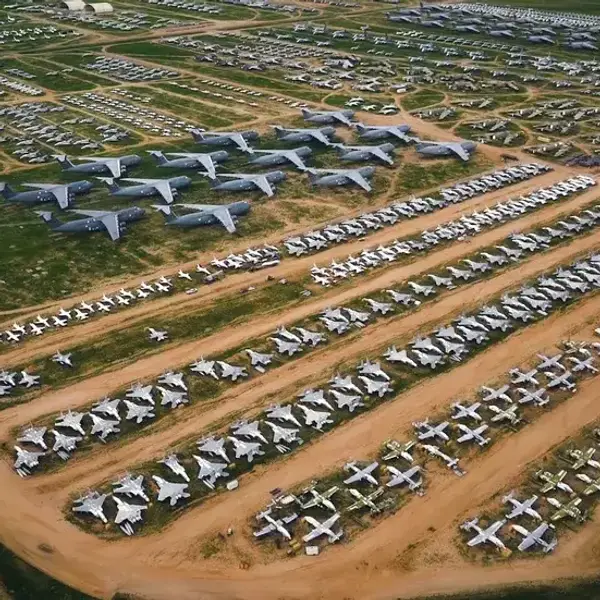Notice how more frequently we hear scientists tell us that we're "wholly unprepared" for this peril or for that rising fatality toll? Turning away from such warnings may reduce immediate tension or anxiety, but only weakens the public awareness and distracts us from addressing the great challenges of our time, such as calamitous climate change, pandemics, and the rise of a host of other self-inflicted disasters.
Here are some warnings about rising and looming risks.
- The opioid epidemic is here now, and poised to become further exacerbated. It is the US's deadliest drug overdose crisis ever, taking over 1000 lives a week. Even that figure is underestimated, according to a report by the Centers for Disease Control (CDC). These fatalities, many of them affecting people in the prime of their life, stem from legally prescribed drugs taken to relieve chronic pain. Tragically ironic!
Congress is figuring out how to budget for many billions of dollars to combat this toll - much greater than the deaths by traffic crashes or AIDS. Republican and Democratic state officials are suing the drug companies for excessive, misleading promotion for profit. Still, the awful toll keeps rising.
- Cyberattacks and cyberwarfare are increasingly becoming a facet of daily life. Although IBM and other firms are trying to develop more effective defenses, the current scale of cyberattacks is "crazy", according to specialist Christopher Ahlberg. As he said in a recent interview with the Wall Street Journal, "If you told anybody 10 years ago about what's going on now, they wouldn't believe it."
Negotiations are not even underway for a cyberwarfare treaty among nations. The sheer scale and horrific implications of this weaponry seems to induce societies to bury their heads in the sand. Former ABC TV host of Nightline, Ted Koppel, discusses this emerging threat in his recent, acclaimed book, "Lights Out: A Cyberattack, A Nation Unprepared":
"Imagine a blackout lasting not days but weeks or months. There would be no running water, no sewage, no electric heat, refrigeration, or light. Food and medical supplies would dwindle. Banks would not function. The devices we rely on would go dark. The fact is, one well-placed attack on the electrical grid could cripple much of our infrastructure. Leaders across government, industry and the military know this...yet there is no national plan for the aftermath."
Former Secretary of Defense and CIA Director, Leon Panetta, says Koppel's book is "an important wake-up call for America." Yet neither he nor the enormous military-industrial complex, of which he remains a supportive part, are doing much of anything about this doomsday threat to national security. The big manufacturers are too busy demanding ever more taxpayer money for additional nukes, aircraft carriers, submarines, fighter planes, missiles and other weaponry of an increasingly bygone age.
- "The World is Not Ready for the Next Pandemic," headlined a recent Time Magazine article. The authors note that the "US Centers for Disease Control and Prevention ranks H7N9 as the flu strain with the greatest potential to cause a pandemic - an infectious disease outbreak that goes global." They predict the disease could claim "tens of millions" of lives.
In between his Twitter-tantrums, President Trump approved an insanely myopic proposed budget cut of over $1 billion in the CDC's programs used to predict and combat rising pandemics from China, African countries and elsewhere. Fortunately cooler heads may prevail in Congress, backed by some private foundations.
The number of new diseases per decade, Time reports, has increased nearly fourfold over the past 60 years. Antibiotics are being overridden by adaptive mutations of bacteria. Dr. Trevor Mundel of the Gates Foundation, asserts, "There's just no incentive for any company to make pandemic vaccines to store on shelves." That profit-driven rejection is exactly why government must act to produce the drugs, as the Department of Defense it has successfully done with new anti-malaria drugs in the seventies and eighties.
University of Minnesota Professor Michael Osterholm, one of the nation's leading experts on infectious diseases, warns that for all our world-class scientists and high-tech isolation units, the US health care system is not ready for the stresses of a major pandemic. Not even close.
- It isn't just Elon Musk, founder of the Tesla company, who is warning that the advent of Artificial Intelligence (AI) is "the greatest risk we face as a civilization." In 2015, hundreds of other scientists, like renowned physicist Stephen Hawking, and technologists, like Steve Wozniak, signed a public letter that was a one day story, instead of an alarmed world turning it into a galvanizing event. Professor Hawking warns us: "Success in creating Artificial Intelligence would be the biggest event in human history. Unfortunately, it might also be the last, unless we learn how to avoid the risks. In the near term, world militaries are considering autonomous-weapon systems that can choose and eliminate targets." We humans, Hawking adds, "are limited by slow biological evolution, couldn't compete and would be superseded by AI" In short, the robots race out of control, become self-actuating and are not held back by any moral boundaries.
From Lincoln to Einstein, we have been counseled that new situations require new thinking. A massive reversal of our world's priorities toward reverence for life and posterity, toward diplomacy and waging peace, toward legal and ethical frameworks for exploding science and technology (including biotechnology and nanotechology) must receive our focus, from families nurturing their children to the philosophers, ethical specialists, engineers and scientists pausing from their exponential discoveries to ponder the serious adverse consequences of their creations.
Our present educational systems - from Harvard Law School, MIT to K-12 - are not rising to these occasions for survival. Our mass media, wallowing in trivia, entertainment, advertisements and political insults, is not holding the politicians accountable to serious levels of public trust and societal safety. Time for new movements awakening our best angels to foresee and forestall. Do any potential leaders at all levels want to be first responders?




